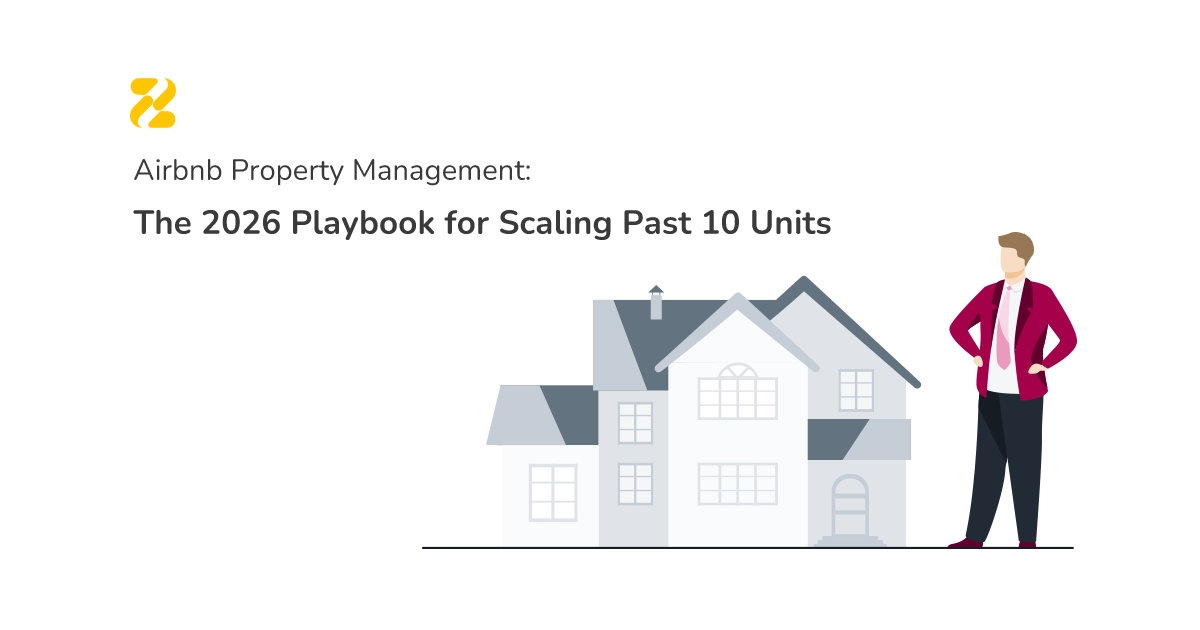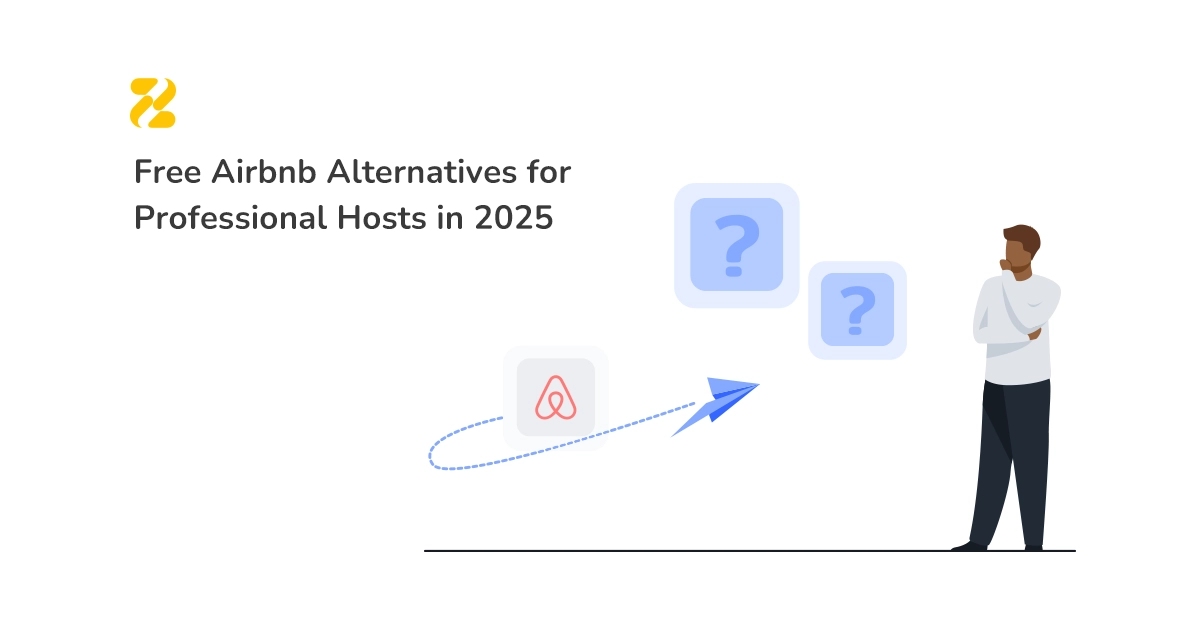Additional guests are a nuisance everywhere, be it a party, gathering, trip or Airbnb extra guests. They are always unwelcome to the hosts’ eyes; however, they are an inevitable recurring problem with short-term rentals. You can barely host a vacation rental without running into these interlopers. Experienced hosts have many Airbnb-extra-guests stories to tell.
By extra guests, we mean the guests who book your vacation rental for, say, two people and show up four, five, six,…, or even ten! They are unauthorised guests who sneak into your property without any prior announcement. They aim to either avoid the maximum occupancy limit or skip additional fees.
Table of Contents
How to Discourage Airbnb Extra Unregistered Guests to Show Up at Your Rental
Vacation rental managers hold different opinions of these additional visitors. Some hosts, especially the new ones who care about negative reviews, will tolerate and let go of them. In contrast, some might get profoundly offended and want to evict all the guests right away.
Regardless of the hosts’ viewpoint and the reason for unregistered guests, Airbnb extra guests must be dealt with firmly because:
- There is a maximum occupancy limit for each property in some countries’ short-term rental regulations or states. Besides, hosts need to know who will be staying in their place.
- Unauthorised guests are prohibited by Airbnb and are subject to a surcharge. ‘Hosts have the right to turn away any guest who has not booked their spot through Airbnb.’
- Additional unregistered guests are dishonest and take advantage of your property.
- They might impose on you added costs for wear and tear, additional bills, extra fees for cleaning, and other resources.
- They can disturb your neighbours by making loud noises or constantly entering and leaving the house.
Here are some effective strategies to discourage unregistered Airbnb guests.
1. Register Every Person Staying at Your Vacation Rental
As a professional vacation rental manager, you must always keep a complete register of your guests. It is necessary to keep a record of your guests for whose actions you are liable. In some countries, it is even required by legislation.
Zeevou’s 5-Step Online Check-in Process can pretty much help you take care of guest registration with no hassle.
2. House Rules, House Rules, House Rules
A clear list of house rules, accepted by guests before booking, is indisputable to save your business from future headaches.
You can only report a guest to Airbnb if you have your maximum occupancy limit evidently stated. Your house rules must be as comprehensive, easy-to-understand and transparent as possible. Clearly state and enforce a fee for extra guests, specifying the exact amount required for extra guests.
Politely but firmly inform your guests that only the registered guest(s) in the booking will be accepted. It could be due to capacity limitations and local short-term rental regulations, and no exceptions will be made.
3. Rental Agreement
Ensure your vacation rental’s house rules are clearly stated on your listing, website, and property. Additionally, create a robust rental agreement for legal protection against potential disputes.
This document must include all the experience details, your house manual and your guests’ register.
4. Security Deposit
Pre-authorise security deposits to cover possible damages, excessive cleaning fees and additional repair charges caused by extra guests. Besides, it can deter your guests from violating your rules and bringing other guests to your property. By implementing this practice, you can encourage compliance and minimise the likelihood of such occurrences.
5. Optimise Your Listing
When presenting your property, be explicit about its size and the maximum capacity of guests it can accommodate. To avoid any misunderstandings or misconceptions, ensure your pricing structure is optimised by prominently featuring the extra guest fee. By doing so, you create a straightforward booking experience, enhancing guest satisfaction and promoting positive reviews and repeat business.
How to Detect Airbnb Extra Unregistered Guests Staying at Your Rental
6. Have a Meet and Greet Check-In If Possible
Many hosts believe that personally checking guests in and showing them around the house can help establish a friendly relationship. Additionally, this can discourage guests from sneaking relatives or friends in without permission. You can also pay them mid-stay visits to ensure everything is going smoothly and no unauthorised guests are staying at your property.
However, vacation rental managers often find themselves overwhelmed with the constant tasks of managing multiple properties. They may also live far away from their rentals, making it impractical to meet guests in person. Some may not afford concierge services, either.
7. Install Vacation Rental Smart Devices
An outdoor security camera can help you monitor your property and save it from theft when it is vacant. Besides that, it can help you collect evidence in the event your guests breach your rules. However, this requires an active presence.
In addition, video doorbell solutions like Ring use motion detection to inform you about any additional guests at your property. They can send you notifications on your phone, tablet, or computer and even let you hear and speak to visitors wherever you are.
The other smart technology that can help you supervise your guests is smart noise monitoring solutions like Noiseaware. Easily installable at your property, this device provides immediate alerts if noise levels exceed a certain level. It can also send your guests direct messages to resolve problems and save you from future issues.
Notice that Airbnb prohibits CCTV and other recording devices that observe a vacation rental interior. So, the guests can report you for this. The hosts must document any kind of security cameras and other recording devices in the Things to Know section under Health & Safety. Check Airbnb’s rules about security cameras and other recording devices in listings before you install any monitoring devices at your place.
How to Handle Airbnb Extra Unregistered Guests Staying at Your Rental
8. Modify the Reservation
Despite taking all the necessary steps to prevent unregistered guests, there may still be instances where unannounced people show up at your front door. In such situations, the only solution is to find a compromise through effective guest communication.
Suppose your property can accommodate the extra guests. In that case, you can send your guests a message and suggest changing their reservation and adding to the number of people staying. Politely ask them to pay you the extra fees for guests.
Beware that you might receive negative reviews from your guests as an act of retaliation. You can respond to their review and clarify the situation, but you still get a poor rate.
9. Report to Airbnb
If you are not lucky enough to make the guests confirm the booking change or pay the extra guest fee, as a last resort, you must report them to Airbnb or any other channel that the booking has come from.
To report unauthorised guests, you can file a resolution request with Airbnb through the Airbnb resolution centre. However, you must ensure that you have sufficient evidence to substantiate the trespass.
The guests will receive a notification of your resolution centre report and will be asked to respond. If they ignore or decline your request, you can tell Airbnb to take action on your behalf after 72 hours.
Should You Allow Extra Guests in Your Airbnb Property?
As an Airbnb host, one important decision to make is whether or not to allow extra guests in your property. While it may seem tempting to accommodate more guests for potential higher revenue, there are several considerations to keep in mind before making a choice.
Capacity and safety: First and foremost, assess the capacity and safety of your property. Determine the maximum number of guests your space can comfortably accommodate without compromising their safety or overall experience. Consider factors, such as available sleeping arrangements, bathroom facilities, and common areas. Ensuring the comfort and safety of your guests should be a top priority.
Property damage and liability: Extra guests can increase the risk of property damage and liability. Consider the potential impact on your property, including wear and tear, increased utility usage, and the need for additional amenities. It may be necessary to revise your pricing structure to account for these factors.
Guest experience and reviews: The experience and satisfaction of your guests should be a key consideration. Hosting a larger group than your property can comfortably accommodate may result in a diminished experience for guests. Negative reviews can impact your listing’s reputation and future bookings. Strive to provide a positive and memorable experience by maintaining a suitable guest-to-space ratio.
Personal availability and support: Consider your availability and ability to manage larger groups. Hosting more guests may require additional time and effort in terms of check-ins, cleaning, and addressing guest needs. Assess your capacity to provide quality service and support for a larger number of guests.
There is no way you can stop receiving unauthorised visitors or solve all issues with guests staying at your property without consent. However, the steps suggested here will help you reduce the chance of receiving Airbnb extra guests and handle the additional visitors without much pain.





